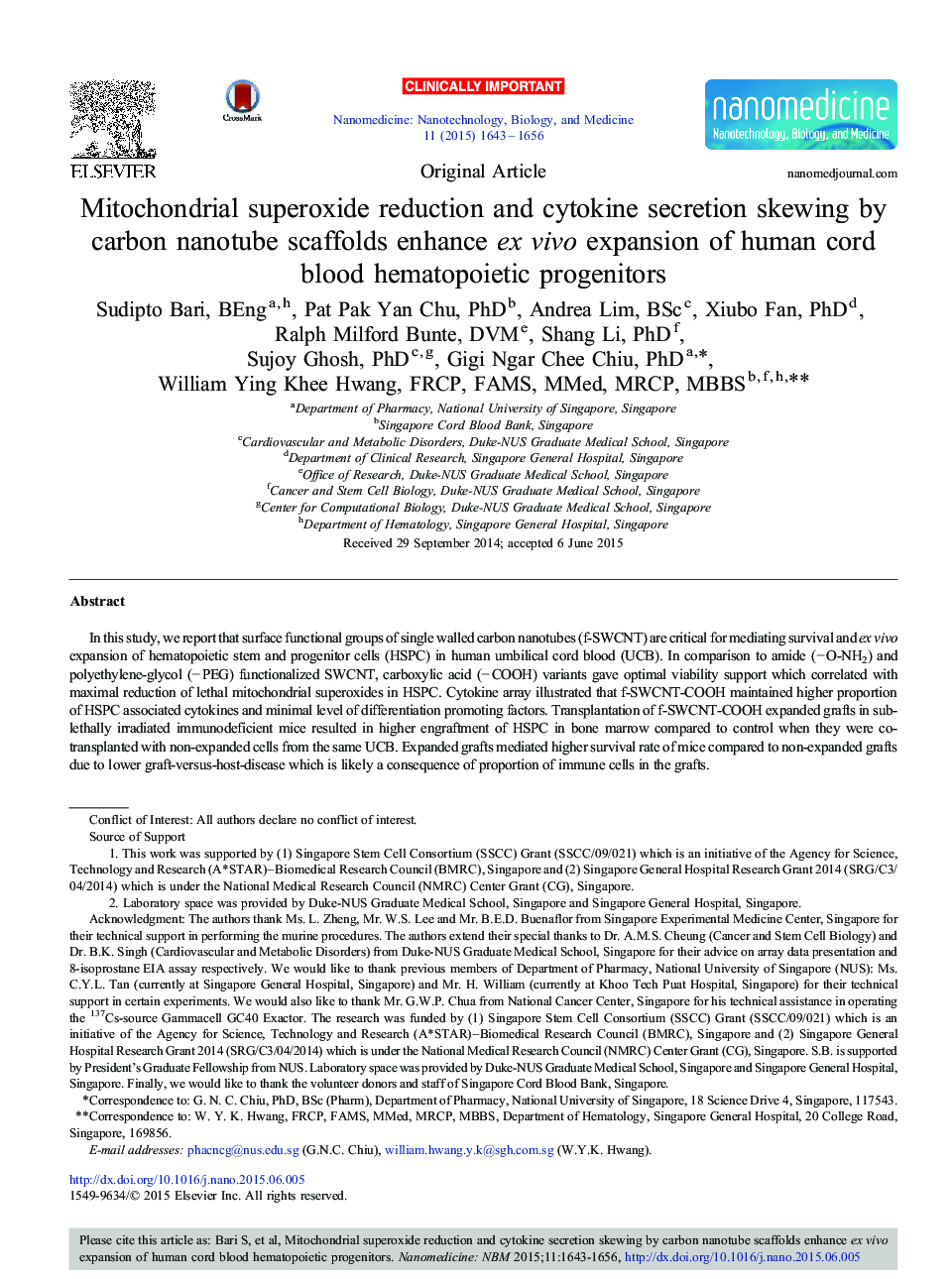| کد مقاله | کد نشریه | سال انتشار | مقاله انگلیسی | نسخه تمام متن |
|---|---|---|---|---|
| 877397 | 911024 | 2015 | 14 صفحه PDF | دانلود رایگان |

In this study, we report that surface functional groups of single walled carbon nanotubes (f-SWCNT) are critical for mediating survival and ex vivo expansion of hematopoietic stem and progenitor cells (HSPC) in human umbilical cord blood (UCB). In comparison to amide (− O-NH2) and polyethylene-glycol (− PEG) functionalized SWCNT, carboxylic acid (− COOH) variants gave optimal viability support which correlated with maximal reduction of lethal mitochondrial superoxides in HSPC. Cytokine array illustrated that f-SWCNT-COOH maintained higher proportion of HSPC associated cytokines and minimal level of differentiation promoting factors. Transplantation of f-SWCNT-COOH expanded grafts in sub-lethally irradiated immunodeficient mice resulted in higher engraftment of HSPC in bone marrow compared to control when they were co-transplanted with non-expanded cells from the same UCB. Expanded grafts mediated higher survival rate of mice compared to non-expanded grafts due to lower graft-versus-host-disease which is likely a consequence of proportion of immune cells in the grafts.From the Clinical EditorUmbilical cord blood (UCB) is a potential source of hematopoietic stem and progenitor (HSPC) cells. One major hurdle for its clinical use is the insufficient yield of cell number. The authors in this study elegantly demonstrated the importance of various functional groups on single-walled carbon nanotubes (f-SWCNT) in enhancing ex vivo expansion of HSPC in UCB. The findings may pave a way for having UCB as a source for HSPC for clinical use in the future.
A comparative study was carried out with different surface functionalized single walled carbon nanotubes (f-SWCNT) namely carboxylic acid (− COOH), amide (− O-NH2) and polyethylene-glycol (− PEG) to assess their ability to support the viability and expansion of umbilical cord blood (UCB)-derived hematopoietic progenitor cells (HPC). f-SWCNT-COOH gave optimal viability support and mitochondrial superoxide reduction that led to clinically relevant expansion of HPC, likely by skewing the cytokine secretion profile. Co-transplantation of f-SWCNT-COOH expanded UCB along with its low dose non-expanded fraction, resulted in both early and long-term hematopoiesis in sub-lethally irradiated immunodeficient mice with minimal symptoms of graft-versus-host disease.Figure optionsDownload high-quality image (174 K)Download as PowerPoint slide
Journal: Nanomedicine: Nanotechnology, Biology and Medicine - Volume 11, Issue 7, October 2015, Pages 1643–1656